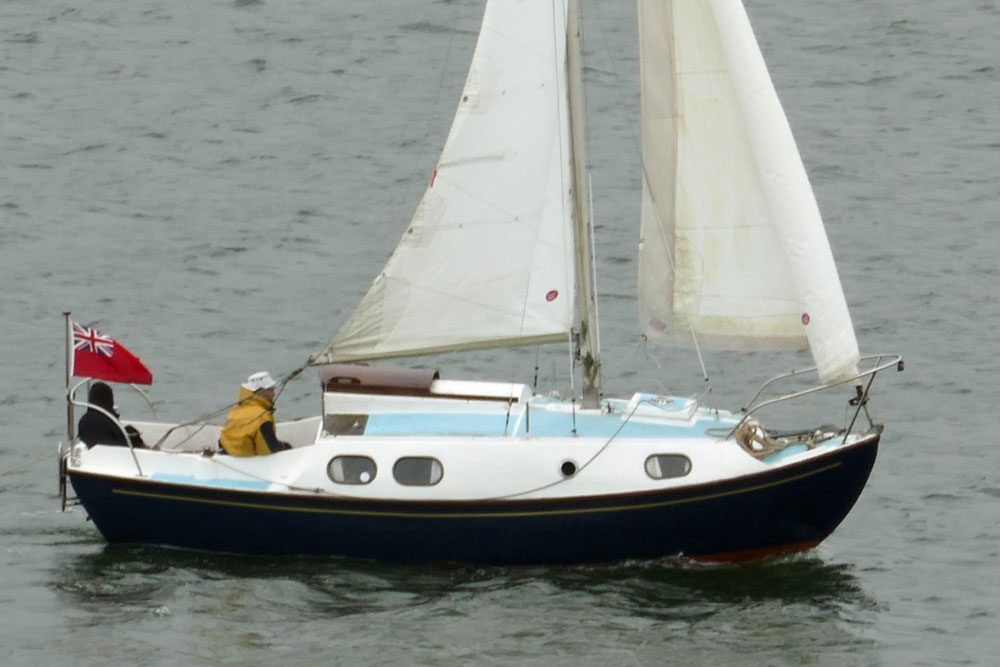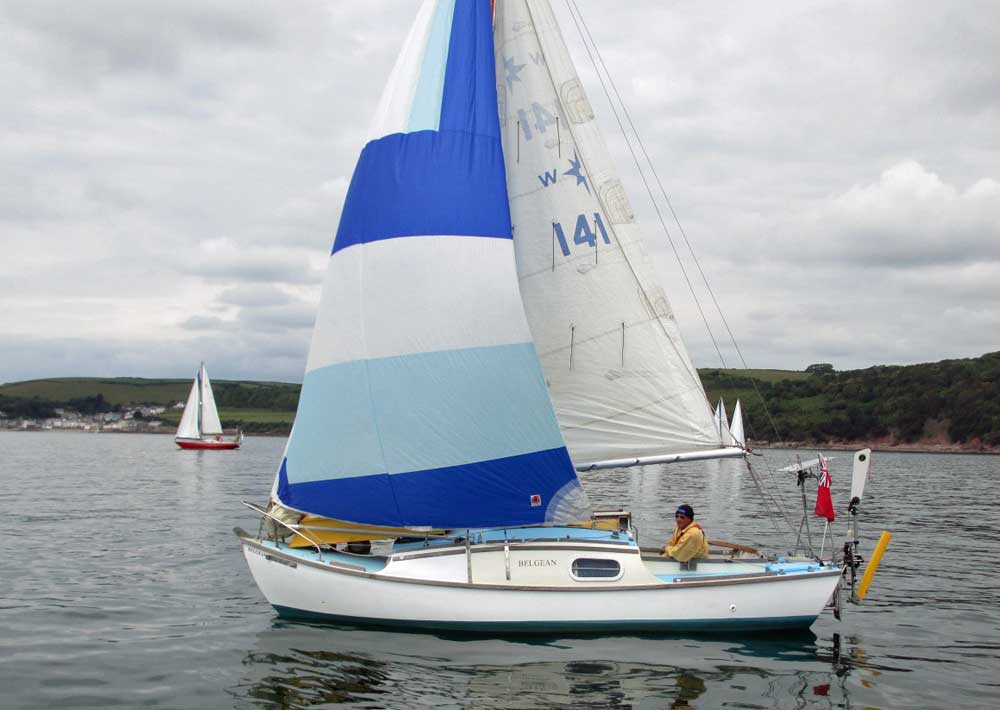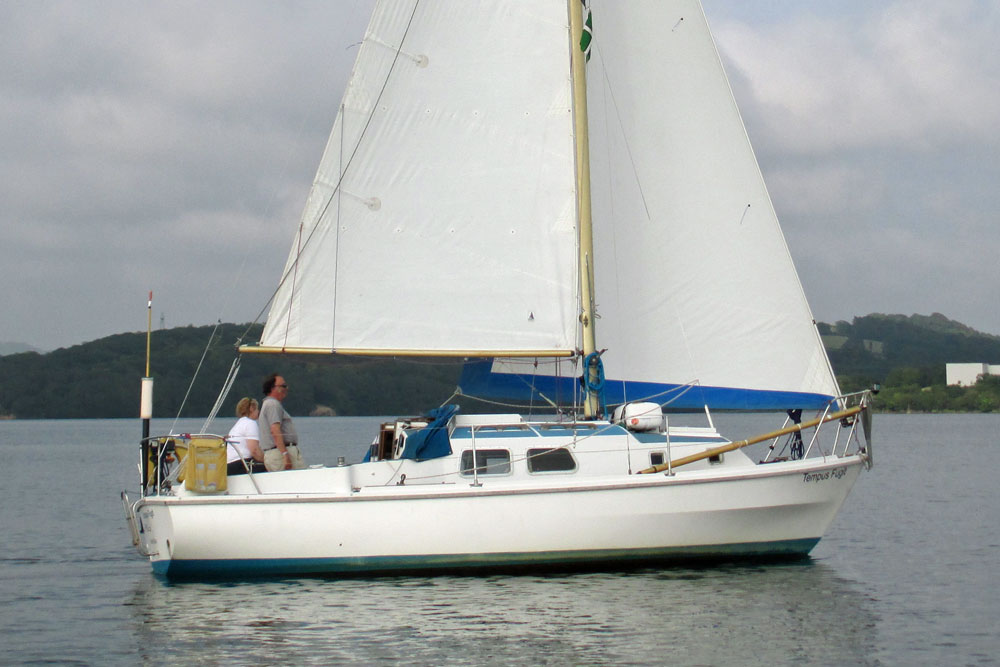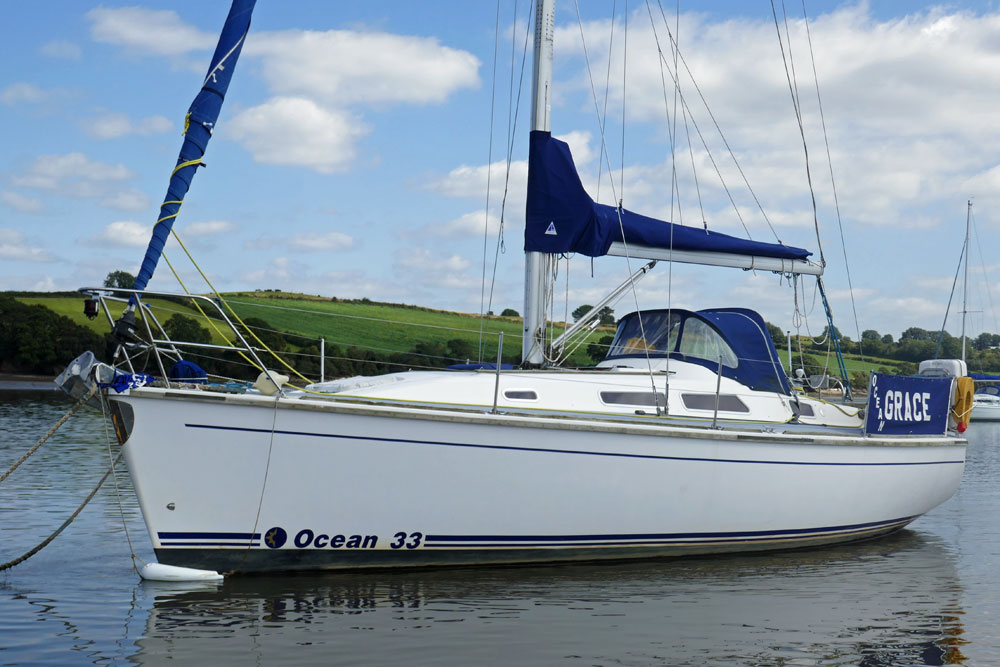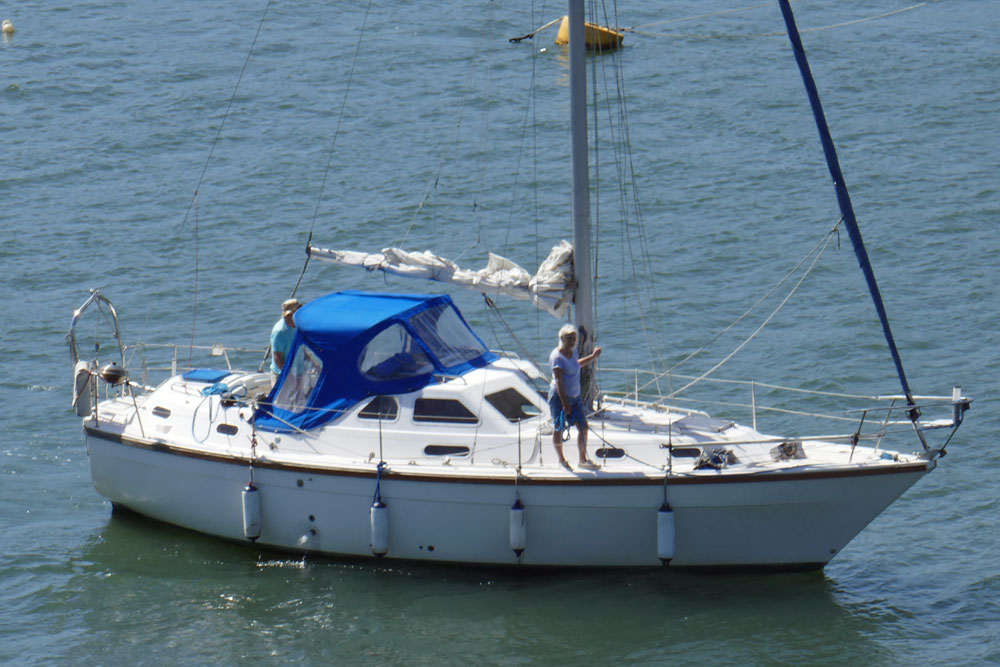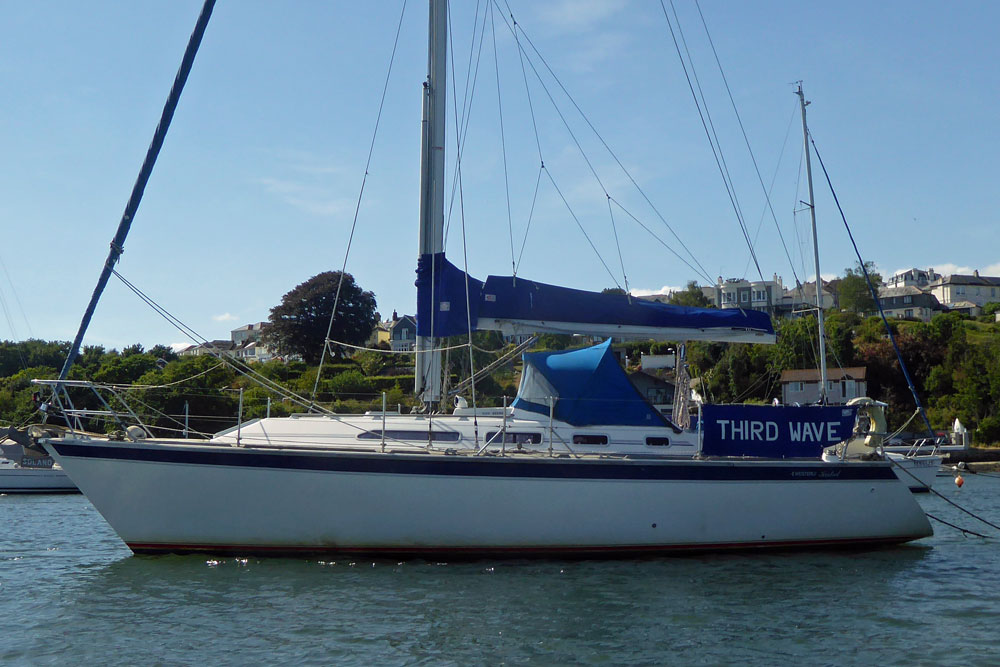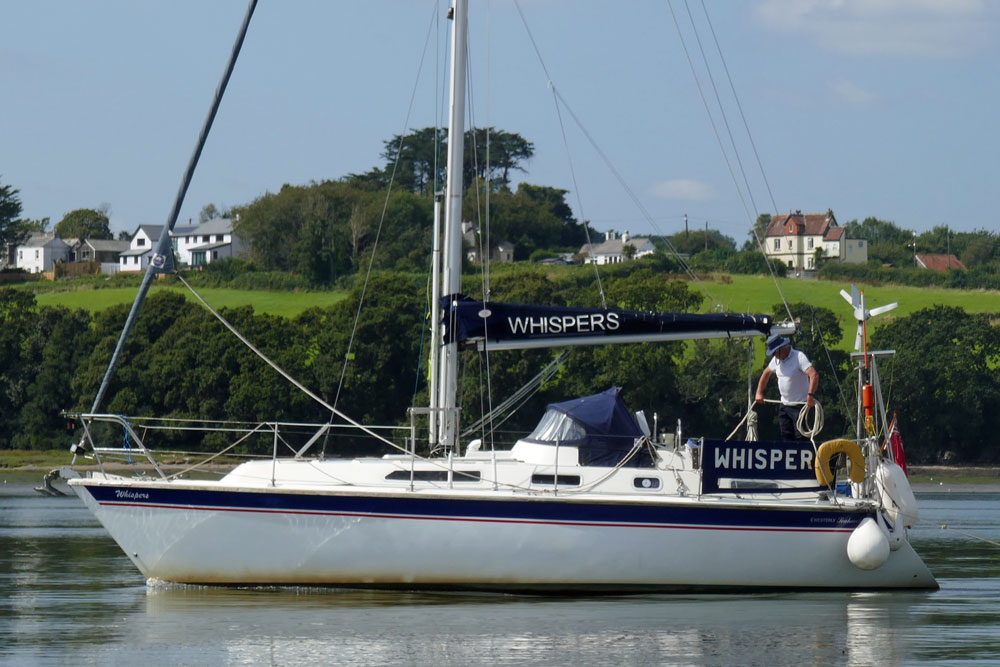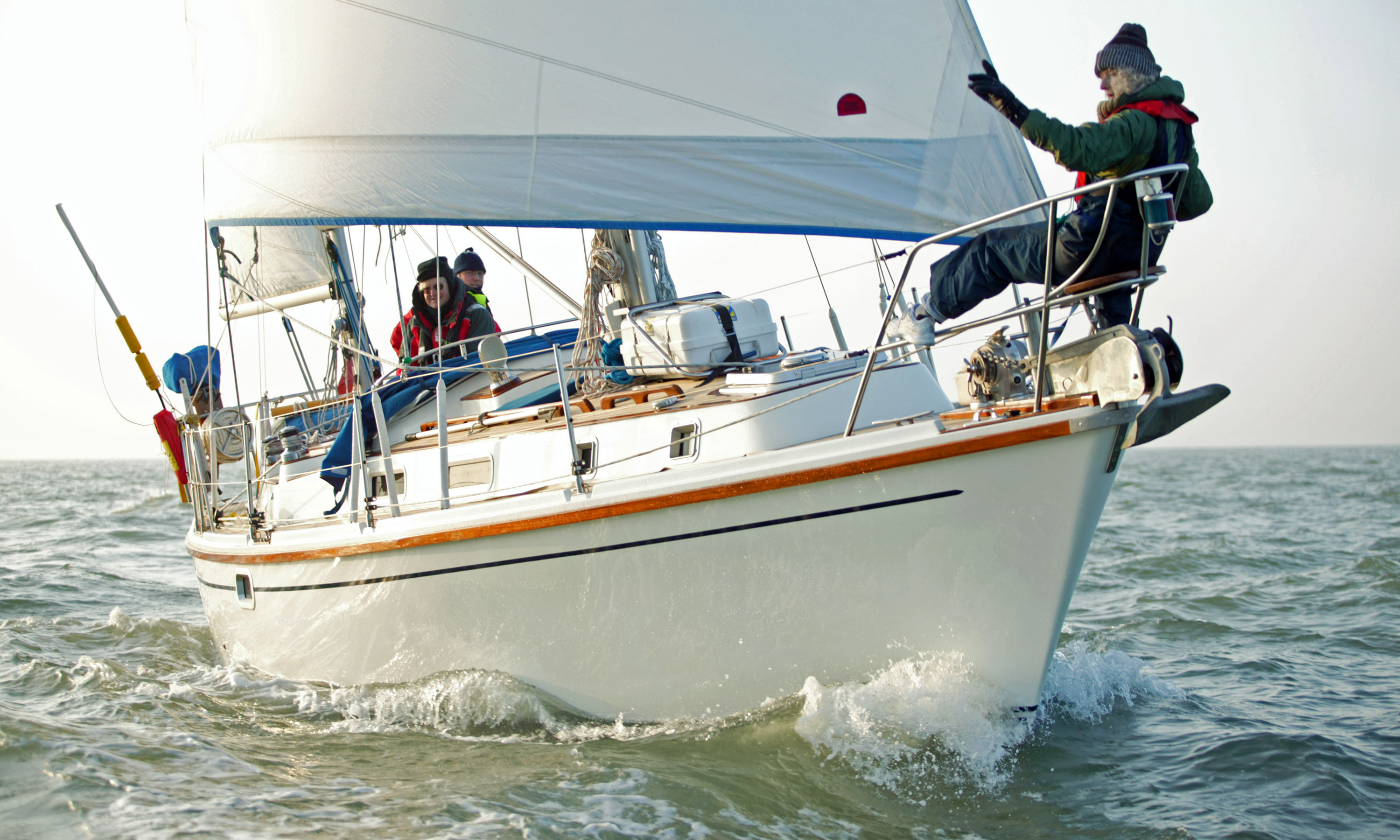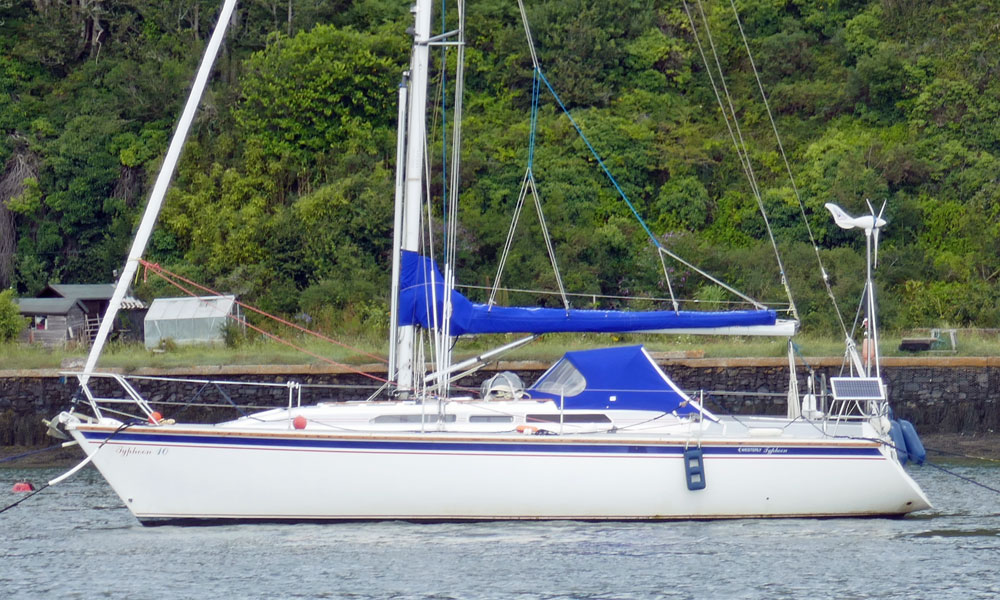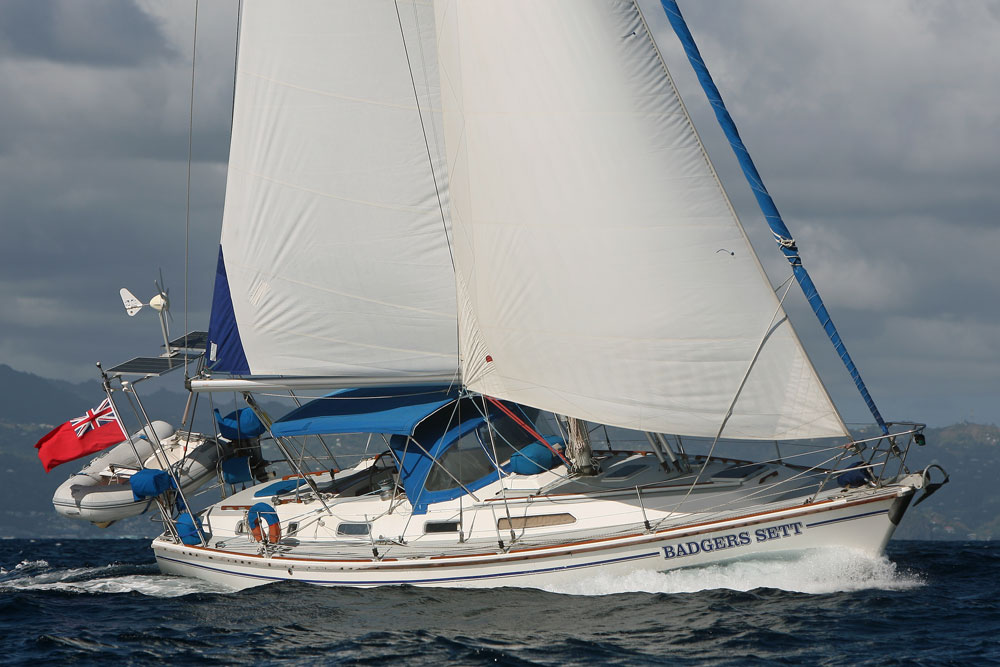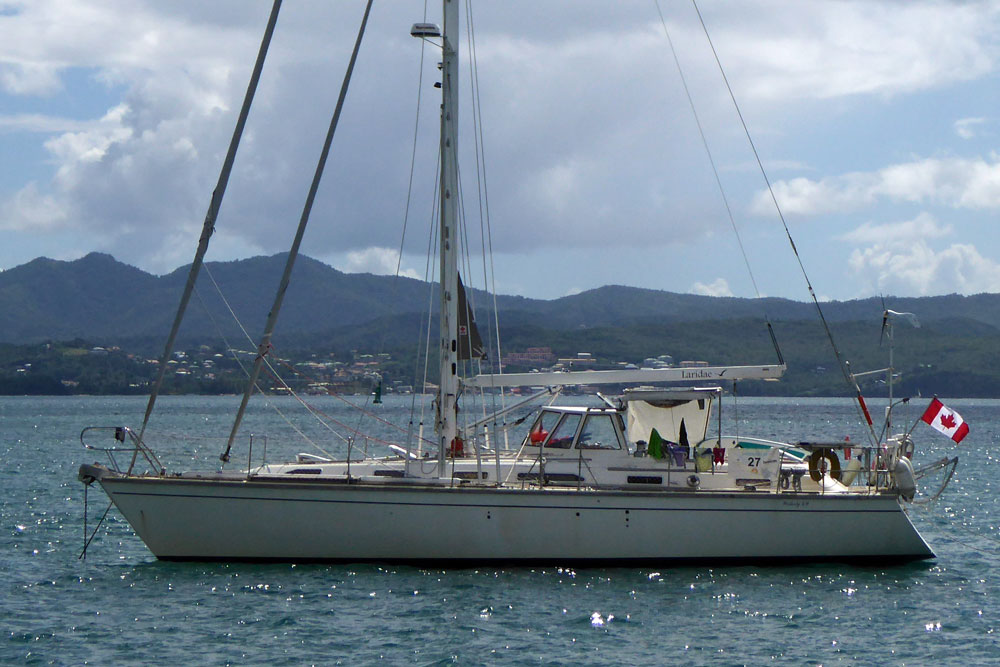- Home
- Cruising Yachts 30' to 35'
- Westerly Berwick
The Westerly Berwick Sailboat
Specs & Key Performance Indicators
The Westerly Berwick, a masthead sloop, was designed by Laurent Giles and built in the UK by Westerly Marine Ltd.
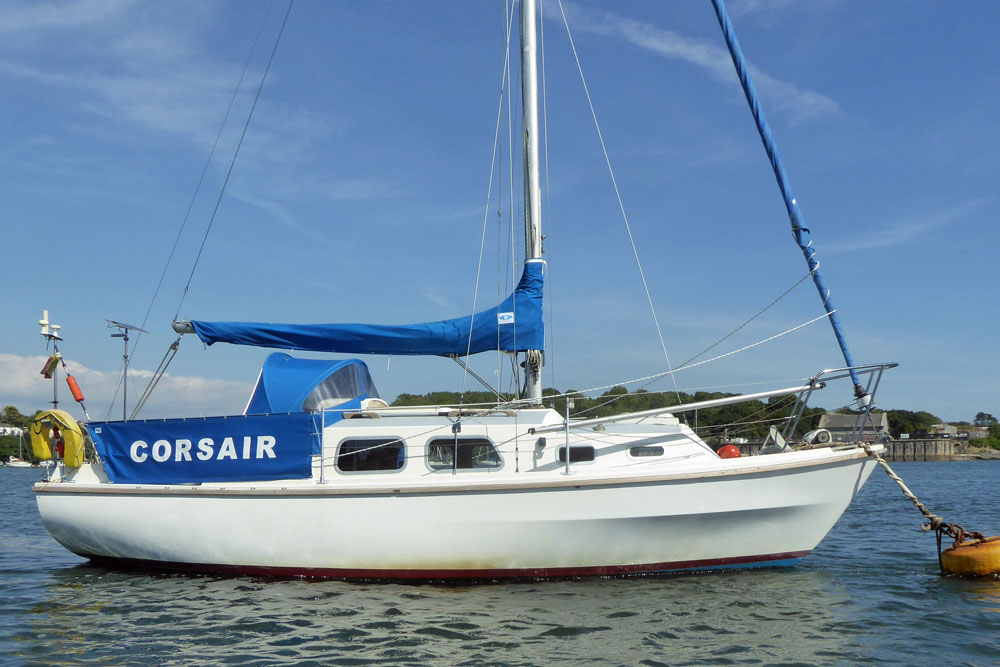 A Westerly Berwick 31
A Westerly Berwick 31Published Specification for the Westerly Berwick
Underwater Profile: Bilge keels & semi-balanced rudder
Hull Material: GRP (Fibreglass)
Length Overall: 31'0" (9.5m)
Waterline Length: 25'0" (7.6m)
Beam: 9'6" (2.9m)
Draft: 3'7" (1.1m)
Rig Type: Masthead sloop
Displacement: 9,790lb (4,441kg)
Ballast: 4,436lb (2,012kg)
Designer: Laurent Giles
Builder: Westerly Marine Ltd (UK)
Year First Built: 1973
Year Last Built: 1980
Number Built: 309
Published Design Ratios for the Westerly Berwick
1. Sail Area/Displacement Ratio: 14.9
2. Ballast/Displacement Ratio: 45.3
3. Displacement/Length Ratio: 280
4. Comfort Ratio: 28.1
5. Capsize Screening Formula: 1.8
Summary Analysis of the Design Ratios for the Westerly Berwick
1. A Sail Area/Displacement Ratio of just 14.9 suggests that the Westerly Berwick will need a stiff breeze to get her going. In light conditions, unless you've got plenty of time on your hands, motor-sailing may be the way to go.
2. A Ballast/Displacement Ratio of 45.3 means that the Westerly Berwick will stand up well to her canvas in a blow, helping her to power through the waves.
3. A Displacement/Length Ratio of 280, tells us the Westerly Berwick is clearly a heavy displacement cruising boat. You can load her down with all your cruising gear and equipment and it will hardly affect her waterline. Not an ideal choice for coastal sailing, but she'll come into her own on an offshore passage in testing conditions.
4. Ted Brewer's Comfort Ratio of 28.1 suggests that crew comfort of a Westerly Berwick in a seaway is similar to what you would associate with the motion of a coastal cruiser with moderate stability, which is not the best of news for anyone prone to seasickness.
5. The Capsize Screening Formula (CSF) of 1.8 indicates that a Westerly Berwick would be a safer choice of sailboat for an ocean passage than one with a CSF of more than 2.0.
More about the Westerly Berwick...
The Westerly Berwick is the twin/bilge keel version of the Longbow, which has a fin keel. The Berwick is one of the four models that share the same basic hull, along with the Pentland, the Renown and the Konsort.
The Berwick is a sloop-rigged aft-cockpit sailboat with a masthead rig and a deck-stepped mast. It has a reported sail area of 39.4 square meters, which is slightly underpowered for its displacement of 4,441 kilograms. However, it has a high ballast ratio of 45.3%, which makes it very stable and stiff. The Berwick has a theoretical hull speed of 7.5 knots under sail and about 6.5 knots under engine. It is best suited as a coastal cruiser, but some owners have taken it offshore as well.
The Berwick has a spacious engine compartment that is easily accessible from the cockpit hatch and the main saloon. The original engine was a Volvo MD2B with 23 horsepower, but some owners have replaced it with newer models. The fuel capacity is 76 liters, which is on the small side for long passages. The water capacity is 114 liters, which is also limited for extended cruising.
The Berwick has a distinctive appearance with its high freeboard, wide beam of 2.9 meters and rounded stern. It has a large cockpit with a tiller steering and ample storage lockers. It has a wide side deck and a raised coachroof that provides good headroom inside. It has a sturdy bow pulpit, stern rail and stanchions with lifelines. It also has a bow roller, an anchor locker and a manual windlass.
Accommodation
The Berwick can sleep up to six people in three separate cabins. The forward cabin has a V-berth with an infill cushion and storage lockers underneath. The main saloon has two settees that can be used as single berths or converted into a double berth with an infill cushion. The saloon also has a folding table that can seat six people comfortably. The saloon has plenty of storage space in shelves, lockers and drawers along the hull sides.
The galley is located at the foot of the companionway on the port side. It has a two-burner gas stove with oven and grill, a stainless steel sink with manual pump, and a large icebox. There is also ample counter space and storage for pots, pans, dishes and food.
The navigation station is located on the starboard side of the companionway. It has a large chart table with storage underneath, an instrument panel, and a quarter berth behind it.
The head is located on the port side between the saloon and the forward cabin. It has a marine toilet, a washbasin with manual pump, and a hanging locker.
The Berwick does not have a deck saloon or wheelhouse, but it has large windows on the coachroof that provide good light and ventilation inside.
Hull and Deck
The Berwick has a solid fiberglass hull with no core material. It has twin/bilge keels that are bolted to the hull with stainless steel bolts. The keels are made of cast iron and have lead ballast inside them. The keels provide good stability and allow the boat to dry out on shallow waters or tidal harbors.
The rudder is attached to a skeg that protects it from grounding or fouling. The rudder is made of fiberglass with foam core and stainless steel stock. It is steered by a tiller that can be fitted with an extension or an autopilot.
The deck is also made of fiberglass with balsa core in some areas for stiffness. It has molded nonskid surfaces for safety and easy maintenance.
This article was written with the assistance of Gemini, a large language model developed by Google. Gemini was used to gather information, summarize research findings, and provide suggestions for the content and structure of the article.
Other sailboats in the Westerly range include:
Recent Articles
-
Beneteau Oceanis 473 Review: Specs, Performance & Cruising Guide
Feb 20, 26 04:49 AM
An in-depth review of the Beneteau Oceanis 473. Discover technical specifications, design ratios, and why this Groupe Finot design remains a top offshore cruising choice. -
Luders 36 Review: Specs, Performance Ratios & Cruising Guide
Feb 17, 26 06:20 PM
An in-depth expert review of the Luders 36 sailboat. Explore technical specifications, design ratios, and the offshore cruising capabilities of this classic Bill Luders design. -
Deck-stepped vs. Keel-stepped mast: An Offshore Engineering Guide
Feb 16, 26 07:59 AM
Comparing deck-stepped vs. keel-stepped mast systems. We analyze the propped cantilever effect, structural loads, and maintenance for offshore sailors.

